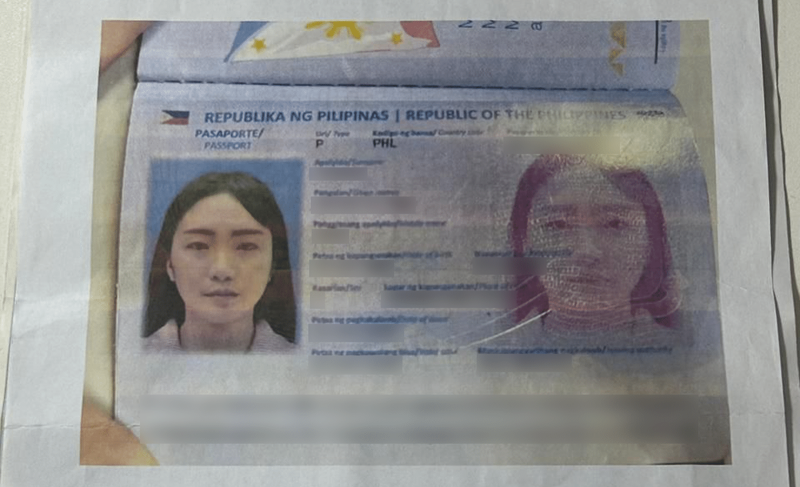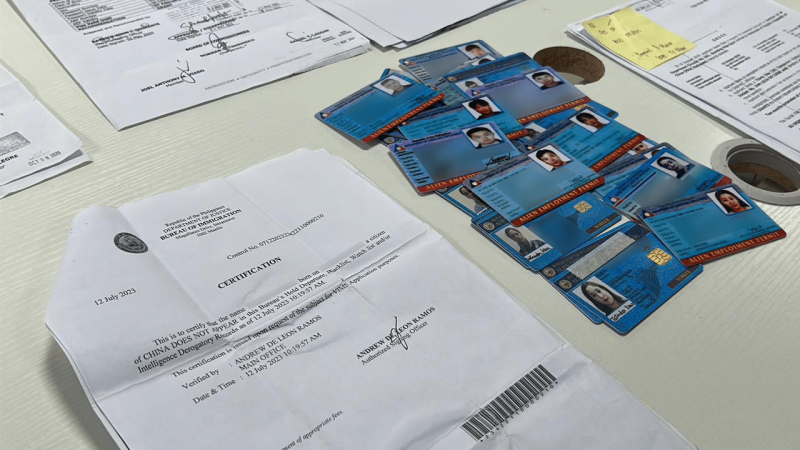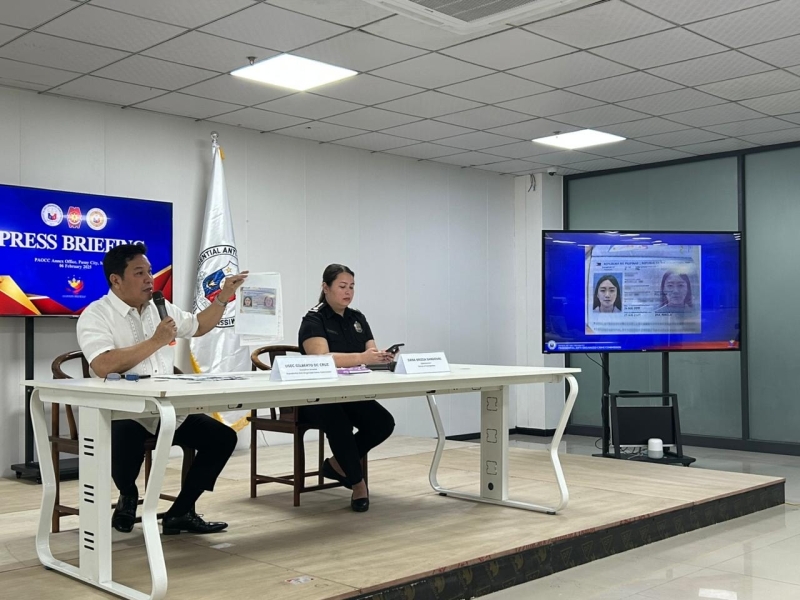Presidential Anti-Organized Crime Commission (Paocc) Executive Director Gilberto Cruz and Bureau of Immigration (BI) spokesperson Dana Sandoval hold a press briefing on Thursday, February 6, 2025, to address cases of individuals impersonating PAOCC personnel and facilitating Philippine government identification documents, such as passports and birth certificates, for foreign nationals. Jown Manalo/INQUIRER.net
MANILA, Philippines — A travel agency involved in issuing “questionable but genuine” Philippine government documents to foreign nationals may be the “missing link” in the Senate probe into Philippine offshore gaming operations (Pogo), according to Presidential Anti-Organized Crime Commission (Paocc) Executive Director Gilberto Cruz.
“If you’ve been following the Senate hearing, this is the missing link that Senator Shewin Gatchalian and Senator Risa Hontiveros have been referring to—a group that facilitates documents so they can obtain passports, PSA birth certificates, and late registrations,” Cruz said in a mix of English and Filipino during a press briefing on Thursday.
On Wednesday, February 5, Paocc conducted a joint entrapment operation against travel and visa consultancy firm JRB Travel and Consultancy Services Inc. in Intramuros, Manila.
This led to the arrest of Rosalie Bermas Bolaños and Jaive Espolong Nobleta for illegally processing Philippine government identification cards for foreign nationals, Cruz added.
“Here, we found that they processed marriage certificates. We also recovered birth certificates, and finally, a passport where the photo is clearly of a foreign national but she’s bearing a Filipino name,” Cruz said.
He noted that while the government documents were genuine and authenticated by issuing agencies like the Philippine Statistics Authority (PSA), the accuracy of their content and information remains in question.
“We will check with the DFA (Department of Foreign Affairs) and we will ask if such a person exists. But as far as the birth certificate and other documents are concerned, they are authentic because they were sent by mail. These came from the PSA and have official receipts,” Cruz explained.
Cruz added that the suspects were also arrested for impersonating Paocc personnel, as reported by two complainants.
“On February 4, 2025, two complainants reported to the Office of the Presidential Anti-Organized Crime Commission regarding an extortion scheme involving individuals claiming to be Paocc employees,” he said.

Photo by Jown Manalo/INQUIRER.net
Cruz said the complainants, who were wives and partners of Pogo workers, were asked to pay large sums of money to secure their loved ones’ release and prevent their deportation.
“One complainant disclosed that she paid approximately P900,000 to secure her fiancé’s release and prevent his deportation,” he revealed.
“The second complainant paid P1.1 million for the release of her husband, who had been apprehended during a law enforcement operation on a Pogo in Parañaque,” the Paocc director added.
However, Cruz clarified that no actual Paocc personnel were involved in the travel agency’s operations.
“Obviously, there were no Paocc personnel involved. They were merely posing as members of Paocc,” he said.
Cruz described the operation as a “big-scale syndicate,” suggesting that the travel agency likely had contacts inside various government agencies.
“It’s obvious why they operate so boldly—because they have contacts in agencies, not just in the Bureau of Immigration but also in other agencies like the PSA and possibly even the LTO,” he said.

Photo by Jown Manalo/INQUIRER.net
He added that the group operates discreetly when under scrutiny but resumes its activities once the situation eases.
“They only lie low when the pressure is on. Once they feel things have calmed down, they strike again. Maybe their key contacts haven’t been exposed yet.,” he said.
With this, Cruz emphasized the need for agencies to scrutinize their own personnel.


